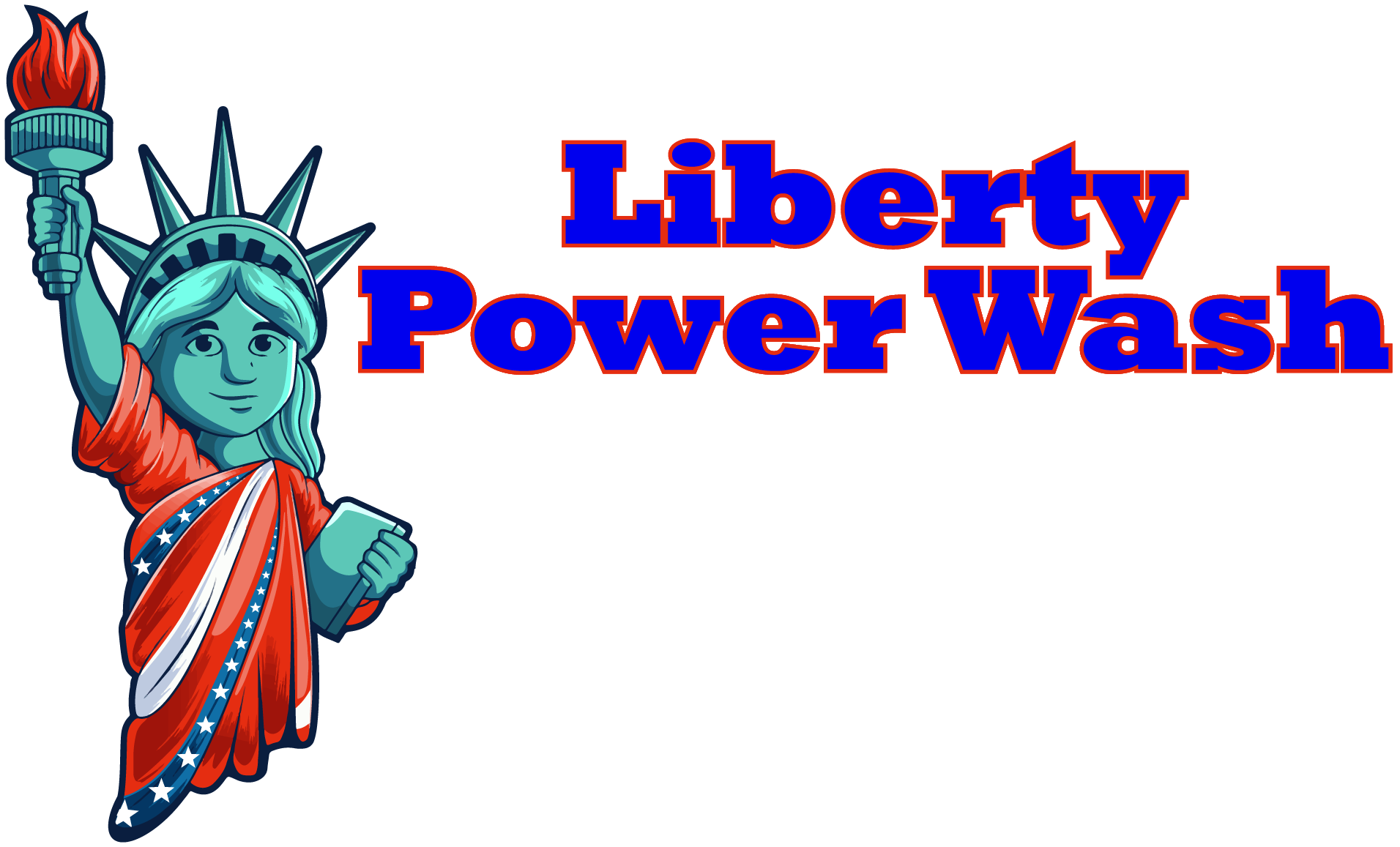Pressure washing a driveway is an essential task that not only enhances the overall appearance of a property but also plays a significant role in maintaining its longevity and durability. Over time, driveways accumulate dirt, grime, oil stains, mold, and mildew, which not only detract from the curb appeal but can also cause structural damage if left unchecked. By utilizing the power of pressure washing, one can effectively remove these stubborn stains and contaminants, restoring the driveway to its pristine condition and prolonging its lifespan.
DIY Basics: Simple Steps to Pressure Wash a Driveway
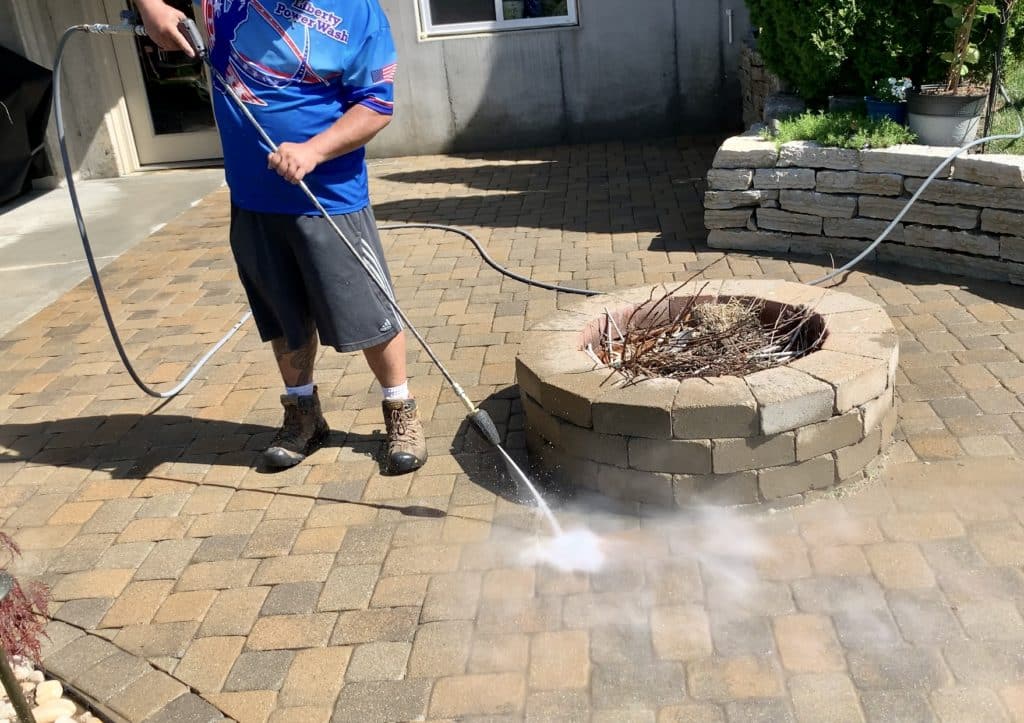
- Select the right pressure washer: Choose a pressure washer with a PSI between 3000 to 3500, ideal for concrete surfaces.
- Prepare the driveway: Make sure the area is clear of loose debris.
- Pre-treat tough stains: Use biodegradable degreasers or pH-neutral concrete detergents tailored for specific contaminations like oil or mold.
- Choose the right nozzle: Use a fan-type nozzle for better coverage.
- Maintain a safe distance: Keep a prudent distance from the surface to prevent damage.
- Wear protective gear: Always wear goggles and gloves for safety.
- Pressure wash the driveway: Follow these steps to effectively clean and maintain your driveway.
Can you damage concrete by power washing
While pressure washing is an effective cleaning method, it can potentially damage concrete if not done correctly. To mitigate power washing risks and guarantee the longevity of your driveway, it’s essential to adopt meticulous surface preparation. Start by removing any loose debris and cleaning off stains that might react adversely to high pressure. This initial step not only safeguards the concrete but also enhances the effectiveness of the cleaning process.
For ideal concrete maintenance, adjust the pressure washer settings to suit the hardness and condition of your driveway. Employing the correct pressure washing techniques is vital; for example, using a fan-type nozzle instead of a pinpoint nozzle can distribute the water pressure more evenly, reducing the risk of eroding or pitting the concrete surface. Additionally, keep the nozzle at a consistent distance from the surface and move it systematically to prevent concentrated streams from damaging specific areas.
Regular driveway cleaning using these strategies not only maintains the aesthetic appeal of your property but also contributes to its structural integrity. Power washing, when done thoughtfully and correctly, can be a safe and liberating way to preserve and enhance your investment in your home’s curb appeal and functionality.
What PSI Pressure Washer is Best for Driveways
Selecting the appropriate PSI (pounds per square inch) to pressure wash a driveway is vital, as it influences both the effectiveness of the cleaning and the preservation of the concrete surface. Typically, a range between 3000 to 3500 PSI is recommended for concrete driveways to guarantee thorough driveway stain removal without causing damage. It’s essential to engage in proper pressure washer maintenance to sustain this level of power and efficiency.
Before initiating the cleaning process, surface preparation is key. Ensuring that the driveway is clear of loose debris and dirt will enhance the cleaning techniques employed, leading to a more satisfactory result. Using a pressure washer with the correct PSI will help in effectively removing grime and stains, restoring the appearance of the driveway.
Additionally, observing safety precautions cannot be overstated. Protective gear such as goggles and gloves should be worn, and the pressure washer should be handled with care to prevent accidents. Always maintain a safe distance from the surface being cleaned to manage the powerful spray responsibly.
Adhering to these guidelines will not only achieve a cleaner driveway but will also extend the life of both the surface and the pressure washing equipment, ensuring freedom from frequent costly repairs or replacements.
What do You Spray on a Driveway Before Pressure Washing
Before pressure washing a driveway, it is advisable to pre-treat the surface with a cleaning solution designed to break down tough stains and loosen debris. Implementing pre-wash treatments enhances the efficacy of the cleaning process, guaranteeing that the surface preparation is thorough. These solutions facilitate easier stain removal and pave the way for applying protective sealants, which can prolong the life of the driveway.
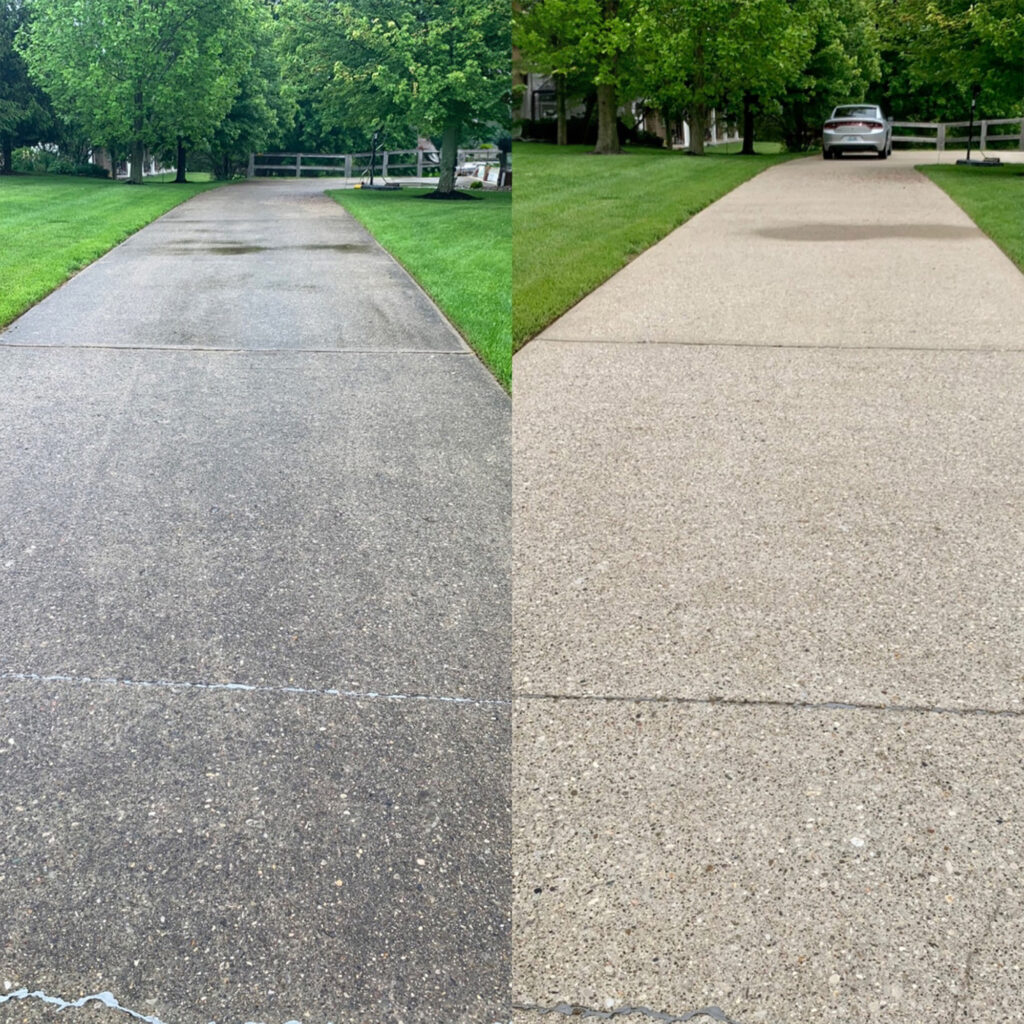
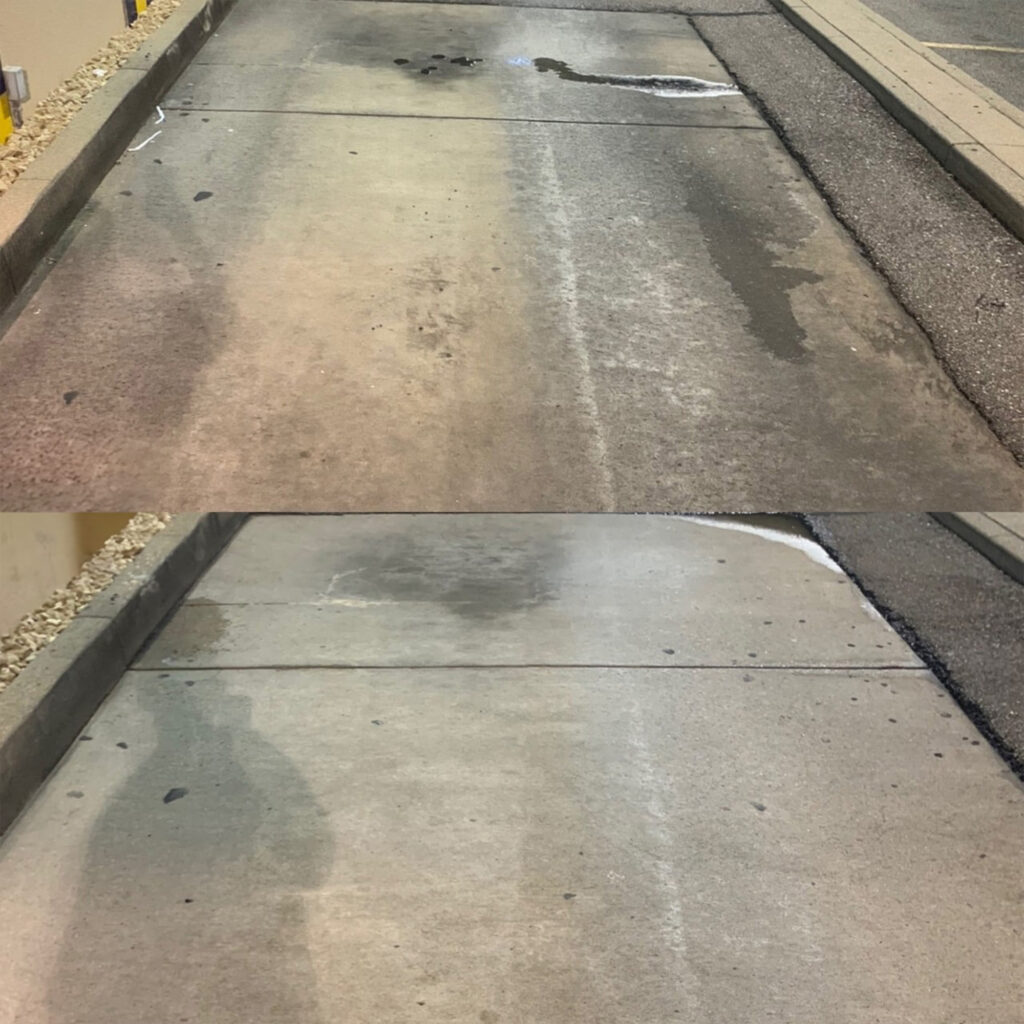
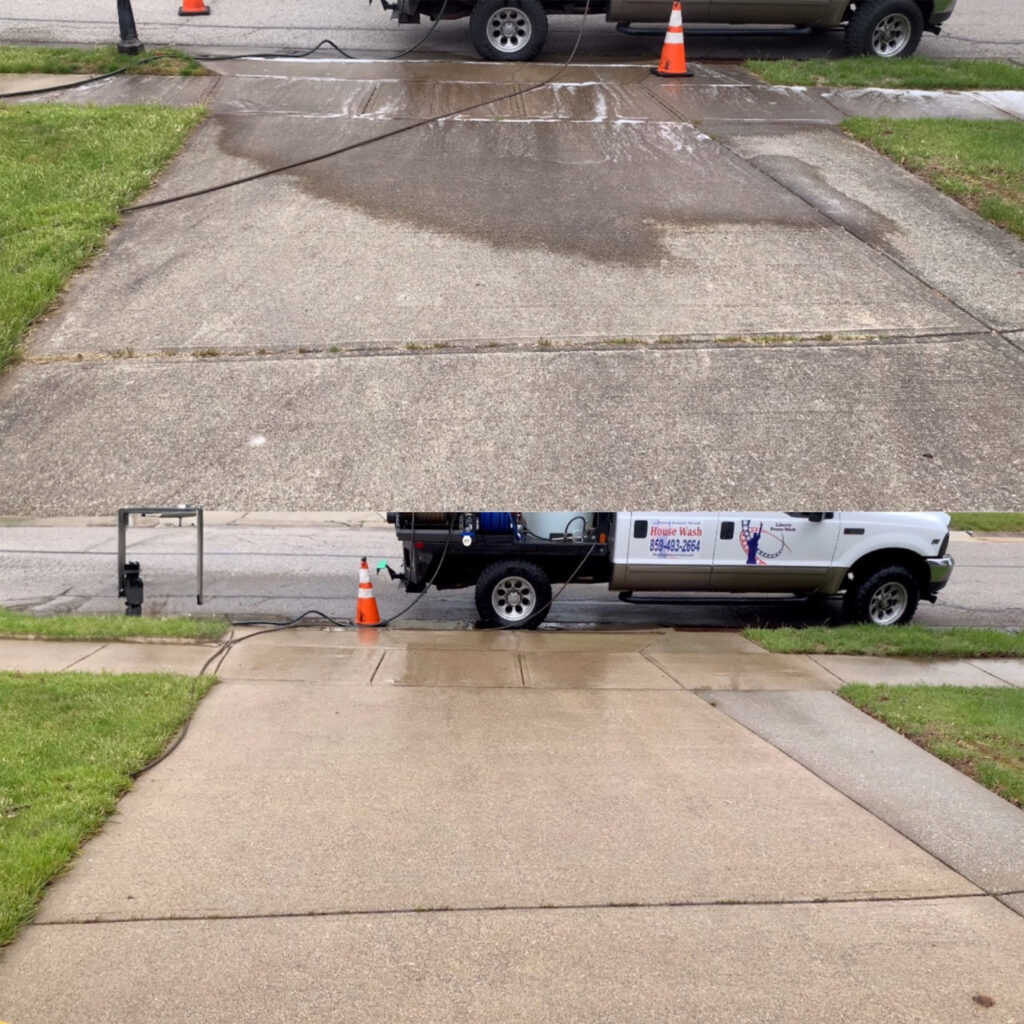
When selecting a cleaning solution, consider the following:
- Biodegradable Degreasers: Ideal for removing oil and grease, making sure they do not harm the environment.
- Concrete Detergents: Specifically formulated for penetrating porous surfaces, lifting dirt and contaminants.
- Mold and Algae Removers: Target biological growth, essential for maintaining surface hygiene and appearance.
- pH-Neutral Cleaners: Safe for all types of driveways, preventing damage to the concrete or stone.
- Rust Stain Removers: Essential for areas with metal fixtures, preventing long-term damage and discoloration.
These cleaning solutions are integral to proper surface preparation, allowing for a deeper clean and preparing the driveway for further maintenance or protective treatments. Always choose products appropriate for your specific driveway material to guarantee optimal results and surface protection.
Is this a DIY job or do I need a professional
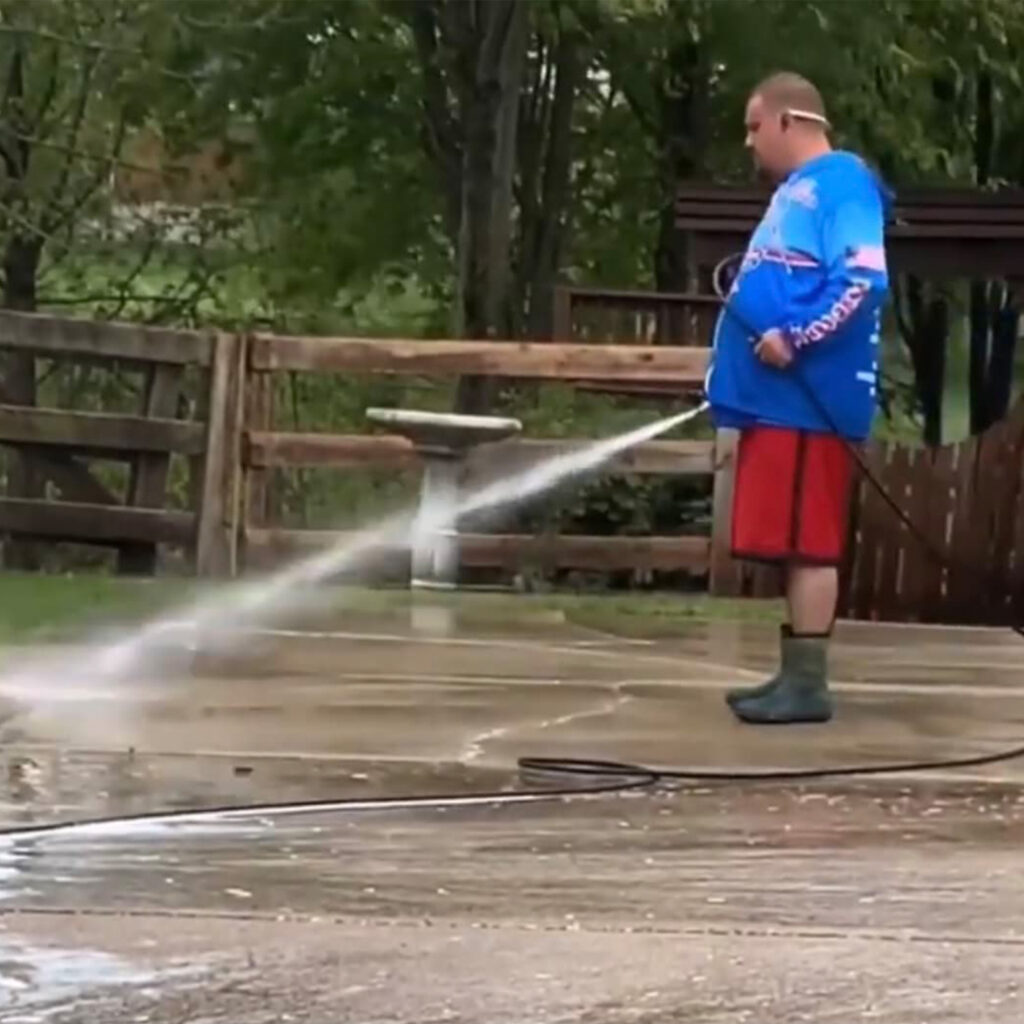
Deciding whether to undertake pressure washing as a DIY project or to hire a professional depends on several factors including skill level, equipment availability, and the complexity of the task. DIY driveway cleaning can be a cost-effective and satisfying endeavor for those who have basic operational knowledge of pressure washers and understand the necessary safety precautions. Essential surface preparation techniques, such as removing loose debris and pre-treating stains, are vital for effective cleaning and can be managed by most homeowners.
However, professional pressure washing offers advantages that go beyond the capabilities of typical DIY efforts. Professionals are equipped with advanced tools and have access to commercial-grade equipment through rental options, which might not be economically feasible for single-use applications. Their expertise enables them to handle complex cleaning tasks more efficiently and with better results, mitigating risks like surface damage.
Professional services incorporate eco-friendly cleaning solutions and adhere to stringent safety standards, ensuring that the job is done with minimal environmental impact and risk of injury. Considering these aspects, while DIY may appeal to those seeking hands-on control and savings, hiring a professional guarantees thoroughness, safety, and long-term preservation of your driveway’s appearance.
Frequently Asked Questions

How Often Should I Pressure Wash My Driveway?
Take into consideration the usage and local environmental conditions before you pressure wash a driveway. Use appropriate equipment to avoid surface damage, adhere to safety guidelines, and minimize environmental impact.
Can Pressure Washing Remove Oil Stains From Driveways?
Pressure washing can effectively remove oil stains from driveways, considering proper stain identification, equipment selection, and detergent choice. This method minimizes environmental impact and surface damage, ensuring freedom from unsightly stains and maintenance hassles.
What Time of Year Is Best for Driveway Pressure Washing?
The best time to pressure wash a driveway is late spring to early fall, considering seasonal considerations, temperature impacts, equipment availability, local conditions, and necessary preparation steps for effective and safe cleaning.
Are There Any Legal Restrictions on Driveway Pressure Washing?
When it comes to legal restrictions on driveway pressure washing, local ordinances often dictate water usage, environmental concerns, and noise regulations. Additionally, some areas may require permits. It is crucial to verify these details to guarantee compliance.
How Does Weather Affect Pressure Washing Effectiveness?
Temperature impacts drying times, while rainfall can hinder operations. Humidity affects cleaning efficiency, wind conditions may disperse cleaning solutions, and sunlight exposure can cause uneven drying when you pressure wash a driveway.
If you’re looking for more than a DIY solution for your driveway, Liberty Power Wash is just a click away!
